 Your new post is loading...

|
Scooped by
Juan Lama
June 12, 2019 1:50 PM
|
It is now recommended that doctors offer a simple pill taken every day -- "pre-exposure prophylaxis" or PrEP -- to people at high risk of acquiring HIV, the life-long viral infection that attacks the body's immune system. The Recommendation Statement is extremely timely, given a national initiative to end the HIV epidemic, and the accompanying evidence report shows PrEP to be both safe and highly effective in preventing HIV acquisition. The USPSTF is, again, deliberate in making its recommendation; PrEP, with the pill combining tenofovir disoproxil fumarate and emtricitabine, was approved by the US Food and Drug Administration in 2012 and first recommended by the Centers for Disease Control and Prevention in 2014. Although uptake of this prevention strategy has been increasing in the United States, implementation challenges remain, driven in part by cost and access. Currently, less than 10% of individuals with an indication for PrEP are receiving this medication. The task force Recommendation Statement also notes that PrEP, in some trials, has been completely effective in preventing HIV infection, but only if medication adherence is continuously high. Adherence support from clinical and nonclinical staff—the Achilles heel of PrEP success—is essential, but especially for youth and women among whom adherence has been low.

|
Scooped by
Juan Lama
June 12, 2019 1:21 PM
|
Vaccines are humanity’s biggest achievement against infectious diseases. But could they defeat HIV, a particularly crafty virus? José Luis Cabero, CEO of Spanish biotech AELIX Therapeutics shared his experience developing an HIV vaccine at Labiotech Refresh in Barcelona. AELIX aims to overcome these limitations by learning from the immune system of people that are innately better at keeping the HIV virus at bay, who are called ‘HIV controllers’. The company analyzed samples from around 1,000 HIV-positive people and found that the immune systems of the controllers target specific regions of the HIV virus that non-controllers’ miss. Equipped with this knowledge, AELIX has designed an HIV vaccine to convert all patients into controllers, removing the need for daily antiretroviral medication. “We administer the vaccine a number of times, and the aim is to take away the antiretroviral treatment,” Cabero said. AELIX is currently testing its vaccine in a phase I trial in individuals with early-stage HIV infection, with results expected late 2020.

|
Scooped by
Juan Lama
June 11, 2019 1:01 PM
|
(HealthDay)—Human papillomavirus (HPV) DNA detected from a mouth rinse may be an effective marker for prognosis during treatment of HPV-positive head and neck cancer, according to a study recently published in JAMA Oncology.

|
Scooped by
Juan Lama
June 11, 2019 12:50 PM
|
Researchers at Helmholtz Zentrum München and the Technical University of Munich, working in collaboration with researchers at the University Medical Center Hamburg-Eppendorf and the University Hospital Heidelberg, have for the first time succeeded in conquering a chronic infection with the hepatitis B virus in a mouse model.

|
Scooped by
Juan Lama
June 11, 2019 12:40 PM
|
Human Cytomegalovirus affects billions of people all around world so why haven't most of us heard of it? HCMV infects 50-60% of people in the UK alone, and infection is reportedly as high as 100% in developing countries such as the Philippines and Uganda. What’s more, once infected you are likely to carry it for the rest of your life. However, while HCMV can cause all kinds of health problems, research into the virus is also helping us harness the power of the human immune system to treat certain types of cancer.

|
Scooped by
Juan Lama
June 10, 2019 6:33 PM
|
NIH scientists discuss current strategies that are the focus of research on eradication or suppression of virus in individuals infected with HIV without dependence on antiretroviral therapy regimens.

|
Scooped by
Juan Lama
June 10, 2019 6:24 PM
|
In the early 1970s there was a ubiquitous television ad promoting Florida orange juice including the line, "a day without orange juice is like a day

|
Scooped by
Juan Lama
June 6, 2019 12:39 PM
|
Investigators have found that instituting combination antiretroviral treatment at the earliest stages of HIV infection may allow the generation of functional CD8 'killer' T cells and preservation of the CD4 helper T cells that are the virus's primary target.

|
Scooped by
Juan Lama
June 6, 2019 1:41 AM
|
Xofluza showed a significant preventive effect after a single oral dose. Only about 1.9% of patients who received Xofluza showed signs of the flu, compared to 13.6% of the placebo group.

|
Scooped by
Juan Lama
June 3, 2019 6:28 PM
|
Scientists in Britain have used gene-editing techniques to stop bird flu spreadi...

|
Scooped by
Juan Lama
June 3, 2019 2:07 PM
|
A universal flu vaccine that could prevent a potential influenza pandemic has been a holy grail for epidemiologists around the world ever since the first flu vaccines were developed in 1938.

|
Scooped by
Juan Lama
June 1, 2019 7:31 PM
|
InBios, a developer of diagnostic tools to detect infectious diseases, wins nod from Food and Drug Administration

|
Scooped by
Juan Lama
June 1, 2019 11:38 AM
|
Researchers find a new giant virus in the hot springs of northern Japan. It's unique genetic makeup of histones and capsid proteins brings new insight into virus evolution.
|

|
Scooped by
Juan Lama
June 12, 2019 1:27 PM
|
A 5-year-old Congolese boy died on Wednesday, a day after officials confirmed his case as the first outside the Democratic Republic of Congo since an outbreak began last summer. The announcement puts new pressure on the World Health Organization (WHO) to declare the Ebola outbreak — the second-deadliest in history — a global health emergency. The outbreak is unfolding amid unprecedented challenges of rebel attacks and community resistance in a region that had never experienced Ebola before. In April, a WHO expert committee decided that the outbreak, while of "deep concern," was not yet a global health emergency . But international spread is one of the major criteria the United Nations agency considers before such a declaration.

|
Scooped by
Juan Lama
June 11, 2019 1:13 PM
|
Nipah virus was discovered in 1998 after an outbreak in Malaysia. Since then, several outbreaks have been reported in Bangladesh and India. Although most outbreaks are relatively small, a very high case-fatality rate is reported (75%). Furthermore, human-to-human transmission has been reported. Currently, no approved vaccine or countermeasure exist. In this manuscript, we discuss a vaccine based on a chimpanzee adenovirus. Importantly, the vaccine vector (ChAdOx1) is in clinical trials. In the work presented here, we show that this vaccine is fully protective against both genotypes of Nipah virus. Furthermore, we observe partial protection against Hendra virus, a related virus. Antibodies produced upon vaccination with our vaccine alone are partially protective against Nipah virus. This is an important step forwards towards the development of an approved vaccine for Nipah virus.

|
Scooped by
Juan Lama
June 11, 2019 12:54 PM
|
India News: As per this data, close to a 1000 people in Maharashtra have contracted HIV through the blood transfusion route over the last five years.

|
Scooped by
Juan Lama
June 11, 2019 12:46 PM
|
Viruses, spread through mosquito bites, cause human illnesses such as dengue fever, Zika and yellow fever. A new control technique harnesses a naturally occurring bacterium called Wolbachia that blocks replication of viruses and breaks the cycle of mosquito-borne disease, according to an international team of researchers. After researchers put Wolbachia into mosquitoes, they found that, quite excitingly, Wolbachia effectively vaccinates mosquitoes, preventing viruses from replicating. In a paper published today in Virus Evolution, McGraw and her team report that dengue virus failed to evolve resistance to Wolbachia in controlled lab-based experiments. These findings show promise for the long-term efficacy of Wolbachia following field release. Although this is good news for the control of dengue and other mosquito-transmitted diseases, the researchers note the study has limitations. The researchers used mosquito cells -- which may not reflect what happens within the whole insect. And outside the lab, where mosquito populations are much larger, there may be more opportunities for the virus to develop resistance to Wolbachia.

|
Scooped by
Juan Lama
June 10, 2019 6:41 PM
|
Providence virus, an insect virus, was used to establish a productive infection in Vigna unguiculata (cowpea) plants. Virus particles purified from these cowpea plants were used to infect two mammalian cell lines. We present evidence that Providence virus, a non-enveloped insect RNA virus, isolated from a lepidopteran midgut cell line can establish a productive infection in plants as well as in animal cells. The observation that Providence virus can readily infect both plants and mammalian cell culture lines demonstrates the ability of an insect RNA virus to establish productive infections across two kingdoms, in plants and invertebrate and vertebrate animal cell lines. Plants should be considered as reservoirs for emerging viruses that may be potentially pathogenic to humans.

|
Scooped by
Juan Lama
June 10, 2019 6:27 PM
|
Climate change and urbanization could increase the number of people at risk of contracting dengue fever, a mosquito-borne disease that can be deadly. Globally, the study estimated that more than two billion additional people could be at risk for dengue in 2080 compared with 2015 under a warming scenario roughly representative of the world's current emissions trajectory. That increase largely comes from population growth in areas already at high risk for the disease, as well as the expansion of dengue’s range.

|
Scooped by
Juan Lama
June 10, 2019 6:19 PM
|

|
Scooped by
Juan Lama
June 6, 2019 12:32 PM
|
Imagine a technology that could target pesticides to treat specific spots deep within the soil, making them more effective at controlling infestations while limiting their toxicity to the environment. Researchers have taken a step toward that goal. They discovered that a particular plant virus can deliver pesticide molecules deeper below the ground, targeting places normally beyond their reach.

|
Scooped by
Juan Lama
June 6, 2019 1:30 AM
|
Findings could represent new drug targets for human pathogens A new study led by researchers at Woods Hole Oceanographic Institution (WHOI) and Swansea University Medical School furthers our knowledge of viruses—in the sea and on land— and their potential to cause life-threatening illnesses.

|
Scooped by
Juan Lama
June 3, 2019 6:18 PM
|
Zynteglo is Bluebird's first drug to be approved and is the first gene therapy to be cleared for use in transfusion-dependent beta-thalassemia. Its marketing authorization from the European Commission follows landmark approvals from the Food and Drug Administration for Novartis' Zolgensma and Spark Therapeutics' Luxturna, which respectively treat spinal muscular atrophy and a type of inherited eye disease. Taken together, the therapies illustrate the rapid advances made in gene therapy over the past several years, as more and more diseases appear treatable by correcting dysfunctional genes. Commercializing such therapies is another question, though, given high costs of treatment and complex production. The conditions all three drugs treat are rare, with only a few hundred to a few thousand patients diagnosed each year. In Bluebird's case, estimates put the number of people in the EU who could initially receive Zynteglo at between 2,000 and 3,000

|
Scooped by
Juan Lama
June 3, 2019 2:05 PM
|
Those with two copies of the delta32 allele in the CCR5 gene are 21 percent more likely to die by age 76, although it's not clear why.

|
Scooped by
Juan Lama
June 1, 2019 7:24 PM
|
Officials say 681 people have tested positive for HIV, of whom 537 are children, since April 25.
|



 Your new post is loading...
Your new post is loading...





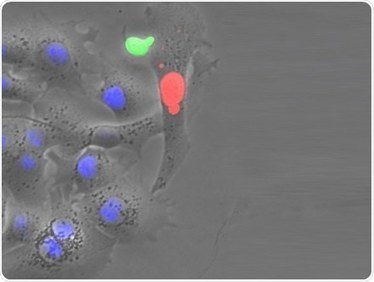
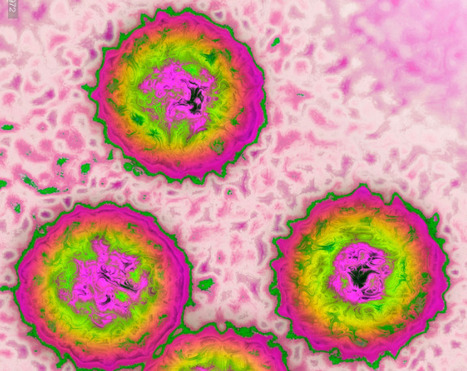
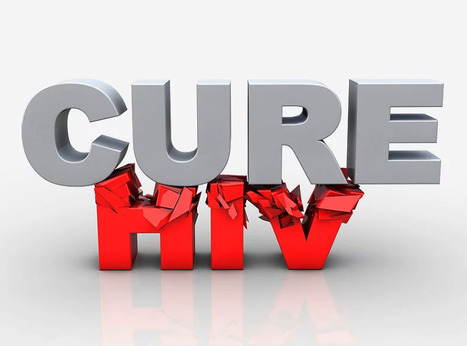

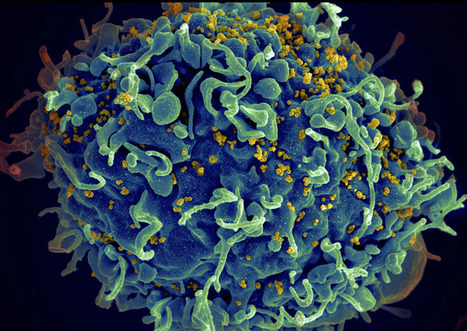
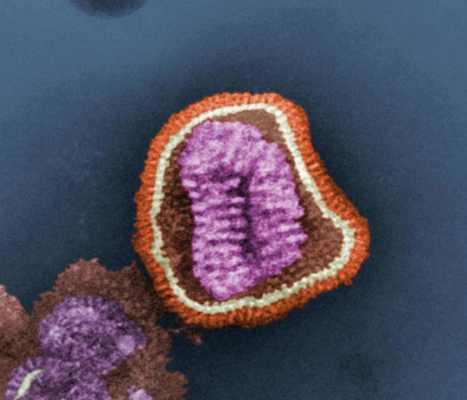
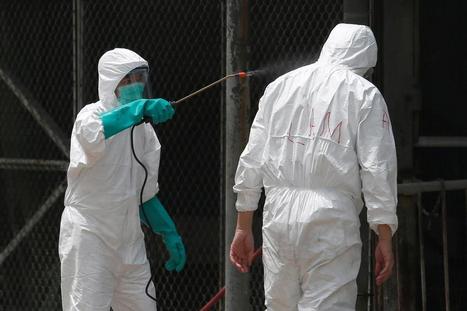




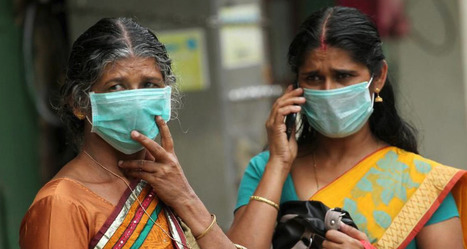





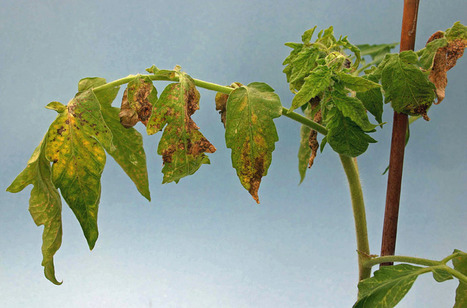
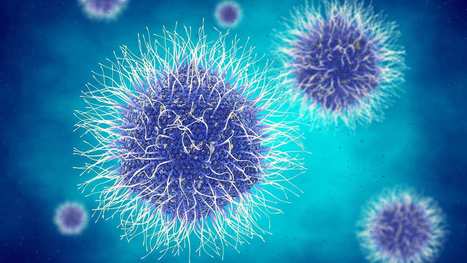


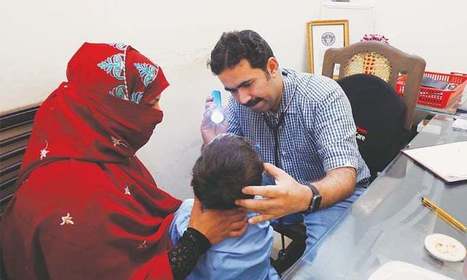





https://doi.org/10.1001/jama.2019.2590